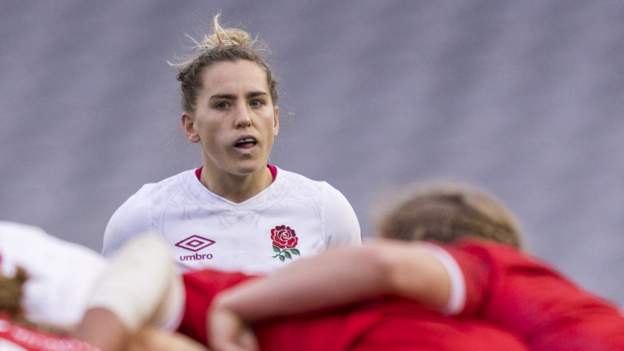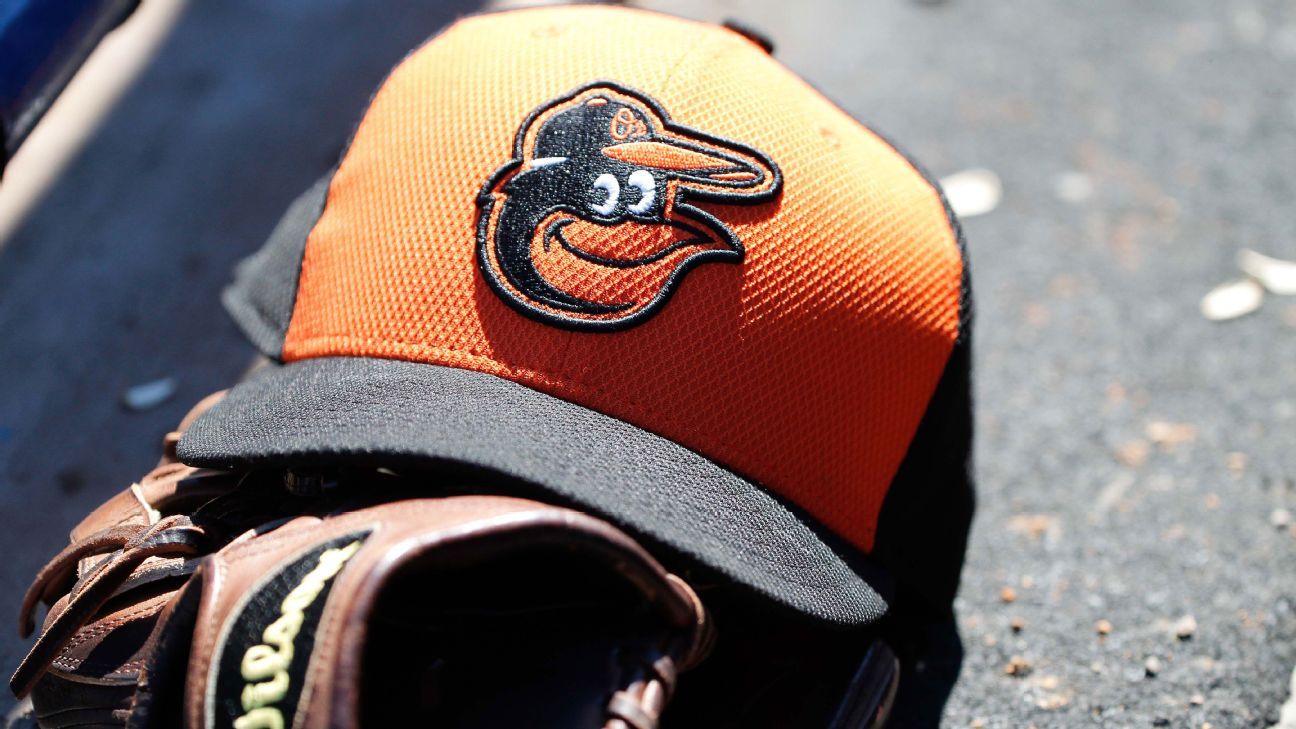
Back in November, the prospect of not playing rugby for four weeks was enough to bring England scrum-half Claudia MacDonald to tears.
Since then, she has had to come to terms with missing the Red Roses' World Cup campaign, losing her status as a professional rugby player and possibly having to give up the sport altogether.
MacDonald was preparing for the autumn internationals with England at the end of 2021 when she sustained a neck injury.
The 26-year-old took the ball off a line-out and was knocked backwards. Her head was compressed against her chest and, initially, she did not realise the severity of the injury.
Thinking it was a soft-tissue problem, MacDonald started in a record win against world champions New Zealand at the end of October.
She was on the bench as England beat the Black Ferns again the following week and then scored two tries in victory against Canada.
MacDonald felt she was at the top of her game, but that match may well be her last.
'Some days I'm angry, some days I'm in denial'
Experiencing "scary" symptoms down the left side of her body, MacDonald had travelled with England to the team hotel before their final autumn Test against the United States.
She was informed by the Red Roses medical team that she needed an MRI and would not play for around a month.
"At that point you're in November and I thought I wasn't going to be playing for four weeks after playing some of the best rugby I've played - all I wanted to do was play rugby," MacDonald tells BBC Sport.
"I can remember crying even then at the prospect of not playing for four weeks."
After the scan, MacDonald was told she would miss Wasps' historic game against Harlequins at Twickenham just after Christmas. She thought she would be back on the pitch in January.
This pattern of preparing to return, then not being able to, continued every three to four weeks until eventually doctors realised it would take much longer for the injury to heal.
With an acute prolapsed disc and another bulging disc, MacDonald has been told she may recover in 12-18 months or, maybe, not at all.
The versatile back, who can also play on the wing, has continued non-contact training with Wasps but says the uncertainty of the injury "runs around your brain".
"Some days it knocks you for six," she continues.
"Some days I'm desperately upset about it, some days I'm angry, some days I'm in denial and still think I can play and my neck is absolutely fine, especially when I'm running around in training.
"Other days I can get excited and look forward to whatever might be next. It's all over the place really."
'Hard' decision not to have surgery
MacDonald was presented with options by several surgeons. The first said she could have two surgeries, with the second further down the line spelling a definite end to her rugby career.
The last said the safest and best option, as a person and not just a rugby player, was to not have surgery at all.
That would mean her neck would have to heal on its own before she could return to rugby, something which may never happen.
With returning to play possibly off the table forever, turning down surgery would also mean giving up her full-time England contract, the Red Roses' current Six Nations campaign and October's World Cup.
"I made the decision not to have surgery," she explains.
"I knew the decision I was making. I was definitely saying goodbye to this Six Nations, probably the World Cup, potentially rugby forever.
"It was a hard decision to make but at least it's been made now."
'At crossroads' as career change looms
Without the contract, MacDonald is essentially left unemployed. England have offered her the support of a psychologist and she does not begrudge the fact that she will have to give up her contract given they are designed to support the Red Roses' dominance at the top of the world game.
"I fully respect that there is a limited resource," she says.
"The contracts are there to support the women who are going to go to the World Cup. That is the reason England are where we are today in terms of development and progress."
MacDonald would have expected to be part of England's current successful Women's Six Nations campaign.
Instead, she is attending job interviews because although she says "I'd love to be a professional rugby player my whole life", MacDonald accepts that may no longer be possible.
She is "at a bit of a crossroads".
"I have to work out now how I can continue improving as a rugby player alongside what will be a different job - I don't know of what description," MacDonald explains.
"I think what I'll do is remove myself entirely and go and do something else. I don't know what that will lead me to."















 Phone: (800) 737. 6040
Phone: (800) 737. 6040 Fax: (800) 825 5558
Fax: (800) 825 5558 Website:
Website:  Email:
Email: 






